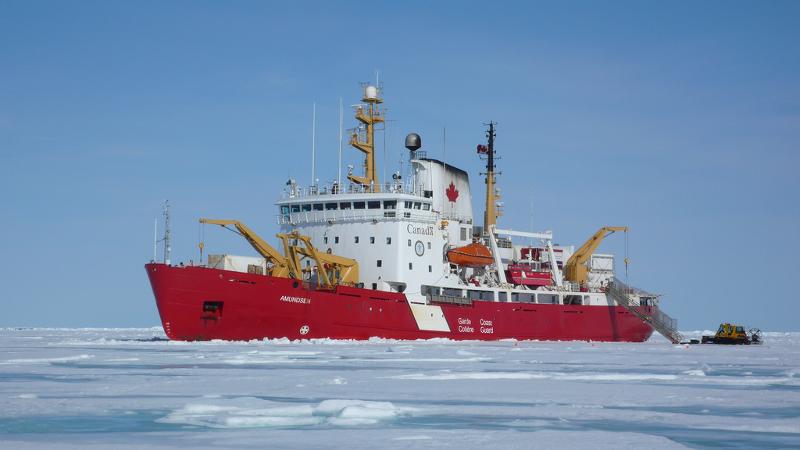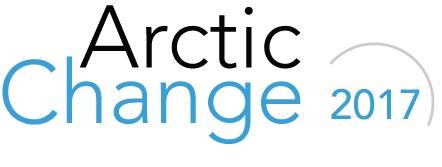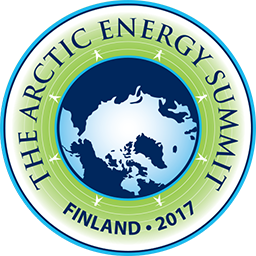|
|
|
|
|
|
|
|
As the Symposium is organized jointly by two leading Research Institutes of Russian Academy of Science - Institute of Water Problems and Melnikov Permafrost Institute, particularly the contributions on following research topics are welcome:
- Observational evidences of change in coupled permafrost-hydrology system.
- Present state and future projections of local, regional and pan-Arctic hydrology.
- Modeling studies representing landscape evolution, dynamics of water storage and permafrost degradation.
- Impacts of permafrost hydrology changes on local communities.
|
Media
Arctic Greenland is Burning, Hunters Blinded by Smoke. Smoke from a wildfire in southwestern Greenland is hampering the wild reindeer hunt on the Arctic island, best known for its ice rather than burning grass and bushes.
Local police say billowing smoke from a blaze on the uninhabited island of Nassuttooq, covering an area of up to 6 square miles "could result in people losing their bearings." Hunter Erik Nielsen told Greenland broadcaster KNR Monday that it means they can't go hunt reindeer for now. ABC News
 The Arctic's Fabled Passage is Opening Up. The Arctic's Fabled Passage is Opening Up. This is What it Looks Like. The Canadian icebreaker - a ship about as long as a football field - shudders as it makes contact, and then crashes through what appears to be more than five feet of ice, bound for a stretch of ocean the scientists on board have been trying to study for years. The ice cracks and falls to the side of the ship, a Canadian coast guard vessel named the Amundsen, turning up a blue underside. And the ship continues on its course, west of Cornwallis Island in the Canadian Arctic. The Washington Post
NASA and Norway to Develop Arctic Laser-Ranging Station. NASA and the Norwegian Mapping Authority are partnering to develop a state-of-the-art satellite laser ranging station 650 miles from the North Pole that will produce high-precision locations of orbiting satellites, help track changes in the ice sheets and improve the efficiency of marine transportation and agriculture. The Arctic station will be the latest addition to a global network of space geodetic stations, which measure and monitor the size and shape of Earth, its orientation in space, the exact location of points on its surface and how these locations change over time. Space geodesy has a decades-long history at NASA due to its important role in the positioning and navigation of satellites. Phys.org
Coast Guard Cutter Maple Reaches Northwest Passage During Historic Voyage. The crew of the Coast Guard Cutter Maple reached the Northwest Passage last Thursday during their historic voyage accompanied by the Canadian Coast Guard Ship Sir Wilfrid Laurier and crew underway in the Amundsen Gulf, Canada. The crew of the Coast Guard Cutter Maple, a 225-foot seagoing buoy tender last homeported in Sitka, Alaska, departed July 12, 2017, on this historic voyage through the Northwest Passage. SitNews
 Exploring the Mysteries of the Arctic's Sea Unicorn. Exploring the Mysteries of the Arctic's Sea Unicorn. Most people know that polar bears are threatened by climate change. But few are aware that narwhal whales - the so-called unicorns of the sea, which are relied on by northernmost Inuit communities for subsistence and cultural survival - could be even more vulnerable. A new exhibit at the Smithsonian National Museum of Natural History in Washington, D.C., aims to bring much-needed attention to the narwhal and the imminent threat it faces with climate change. The exhibit, "Narwhal: Revealing an Arctic Legend," also explores an enduring mystery about narwhals: What exactly is the purpose of that saber-like tusk sticking out of its head? News Deeply
|
|
Future Events
VII International Conference on Cryopedology, August 21-25, 2017 (Yakutsk, Russia). The conference will be hosted by the Institute for Biological Problems of the Cryolithozone of the Siberian Branch of the Russian Academy of Sciences (SB RAS). Plenary reports will be organized in the hall of the Academy of Sciences of the Sakha (Yakutia) Republic. The official languages of the conference are English and Russian (with translation). All technical facilities (projectors, computers, video sets) will be available during the conference for presentation of papers. Additional information will be available soon. See the Facebook page here.
 2017 University of the Arctic Rectors' Forum and Conference, August 27-29, 2017 (Aberdeen, Scotland). This conference will also consider how northern scholarship can add to discussions on the North into broader terrains of intellectual engagement. In so doing, it will challenge dominant paradigms of research in both the natural and the social sciences, above all by calling into question the very separation of the world of nature from that of human society which underwrites the distinction between these two branches of scientific inquiry. In its place the conference will seek to forge a new practice of interdisciplinary research, done in collaboration with northern residents and on their terms, which recognizes that every discipline is itself an ongoing conversation, or a way of knowing, rather than a compartment within an overarching, hierarchically organized system of knowledge. Conversations from the North will, then, help to generate a science that is more open-ended, responsive to environmental variation and respectful of the wisdom of inhabitants. 2017 University of the Arctic Rectors' Forum and Conference, August 27-29, 2017 (Aberdeen, Scotland). This conference will also consider how northern scholarship can add to discussions on the North into broader terrains of intellectual engagement. In so doing, it will challenge dominant paradigms of research in both the natural and the social sciences, above all by calling into question the very separation of the world of nature from that of human society which underwrites the distinction between these two branches of scientific inquiry. In its place the conference will seek to forge a new practice of interdisciplinary research, done in collaboration with northern residents and on their terms, which recognizes that every discipline is itself an ongoing conversation, or a way of knowing, rather than a compartment within an overarching, hierarchically organized system of knowledge. Conversations from the North will, then, help to generate a science that is more open-ended, responsive to environmental variation and respectful of the wisdom of inhabitants.
- Small and off-grid community energy solutions
- Oil and gas development
- Renewable energy
- Regulation and Financing
- Transportation and transmission
The AES is a multi-disciplinary event expected to draw several hundred industry officials, scientists, academics, policy makers, energy professionals and community leaders together to collaborate and share leading approaches on Arctic energy issues.
** New this week ** 5th Northern Oil and Gas Research Form, October 11-13, 2017 (Anchorage, Alaska USA). The United States is hosting the 5th Northern Oil and Gas Research Forum from October 11-13, 2017, in Anchorage, Alaska. This meeting will feature current research and highlight information needs for management of petroleum activities in the US and Canadian Arctic. Abstracts for poster presentations on research and how research is used in management actions are presently being solicited. Please visit the Forum's website (here) for additional details. Deadline for abstract submission is September 10. There is no registration fee for the Forum. Please use the website link above for information on registration, agenda, lodging and transportation.
2017 Arctic Circle Assembly, October 13-15, 2017 (Reykjavik, Iceland). The annual Arctic Circle Assembly is the largest annual international gathering on the Arctic, attended by more than 2000 participants from 50 countries. The Assembly is held every October at the Harpa Conference Center and Concert Hall and is attended by heads of states and governments, ministers, members of parliaments, officials, experts, scientists, entrepreneurs, business leaders, indigenous representatives, environmentalists, students, activists and others from the growing international community of partners and participants interested in the future of the Arctic.
 Polar Law Symposium 2017 and Rovaniemi Arctic Spirit, November 13-16, 2017 (Rovaniemi, Finland). The purpose of the Polar Law Symposium is to examine, in detail, the implications of the challenges faced by the Polar Regions for international law and policy and to make recommendations on appropriate actions by states, policy makers and other international actors to respond to these emerging and re-emerging challenges. The Rovaniemi Arctic Spirit Conference is integrated with the Polar Law Symposium, which will be organized by the Northern Institute for Environmental and Minority Law at the Arctic Center of the University of Lapland. Polar Law Symposium 2017 and Rovaniemi Arctic Spirit, November 13-16, 2017 (Rovaniemi, Finland). The purpose of the Polar Law Symposium is to examine, in detail, the implications of the challenges faced by the Polar Regions for international law and policy and to make recommendations on appropriate actions by states, policy makers and other international actors to respond to these emerging and re-emerging challenges. The Rovaniemi Arctic Spirit Conference is integrated with the Polar Law Symposium, which will be organized by the Northern Institute for Environmental and Minority Law at the Arctic Center of the University of Lapland.
ArcticNet invites the global Arctic research community to Arctic Change 2017! This conference will bring together Arctic researchers and students with Inuit, Northerners and government, industry and NGO stakeholders. The world's foremost Arctic scientists will present research findings and discuss impacts of climate change and modernization. With  over 1500 participants expected, Arctic Change 2017 will be one of the largest trans-sectoral international Arctic research conferences held in Canada. We welcome students and early career researchers to participate in "Student Day" at the start of the Conference. See an excerpt from last year: ArcticNet ASM2016. over 1500 participants expected, Arctic Change 2017 will be one of the largest trans-sectoral international Arctic research conferences held in Canada. We welcome students and early career researchers to participate in "Student Day" at the start of the Conference. See an excerpt from last year: ArcticNet ASM2016.
ISAR-5 Fifth International Symposium on Arctic Research, January 15-18, 2018 (Tokyo, Japan). The fifth ISAR has been planned at the recommendation of the science steering committee of ISAR-4, which was held in Toyama, Japan in April 2015. The fifth ISAR will be devoted to discussions on environmental changes in the Arctic and their regional and global implications, to seek additional international scientific collaboration in this area by gathering, synthesizing and sharing information related to these changes occurring in the Arctic. Special emphasis will be placed on the fields of the social sciences and humanities, which were not included in the previous ISARs. ISAR-5 will consist of general sessions and special sessions. The general sessions will address the following topics: atmosphere; ocean and sea ice; rivers, lakes, permafrost, and snow cover; ice sheets, glaciers, and ice cores; terrestrial ecosystems; marine ecosystems; geospace; policies and economy; and social and cultural dimensions. Special sessions will be solicited on cross-cutting themes.
The Effects of Climate Change on the World's Oceans, June 4-8, 2018 (Washington, DC USA).
The 4th International Symposium will bring together experts from around the world to better understand climate impacts on ocean ecosystems - and how to respond. The event is hosted by a variety of groups including International Council for the Exploration of the Sea (ICES), North Pacific Marine Science Organization (PICES), Intergovernmental Oceanographic Commission of UNESCO (IOC), and Food and Agriculture Organization of the United Nations (FAO).
 POLAR 2018, June 15-27, 2018 (Davos, Switzerland).POLAR2018 is a joint event from the Scientific Committee on Antarctic Research (SCAR) and the International Arctic Science Committee (IASC). The SCAR meetings, the ASSW and the Open Science Conference will be hosted by the Swiss Federal Institute for Forest, Snow and Landscape Research WSL under the patronage of the Swiss Committee on Polar and High Altitude Research. The WSL Institute for Snow and Avalanche Research SLF is organizing POLAR2018. POLAR 2018, June 15-27, 2018 (Davos, Switzerland).POLAR2018 is a joint event from the Scientific Committee on Antarctic Research (SCAR) and the International Arctic Science Committee (IASC). The SCAR meetings, the ASSW and the Open Science Conference will be hosted by the Swiss Federal Institute for Forest, Snow and Landscape Research WSL under the patronage of the Swiss Committee on Polar and High Altitude Research. The WSL Institute for Snow and Avalanche Research SLF is organizing POLAR2018.
** New this week ** 17th International Congress of Circumpolar Health (ICCH17), August 12-15, 2018 (Copenhagen, Denmark). The ICCH congresses are held every third year in different locations in the circumpolar area and represent the largest scientific meetings worldwide on circumpolar health. The ICCH congresses serve as the primary source of information exchange and scholarly communication in issues relating to circumpolar health. More than 750 participants generally register and participate in each Congress, and more than 400 scientific papers or posters are usually presented.
Arctic Biodiversity Congress, October 9-11, 2018 (Rovaniemi, Finland). The second Arctic Biodiversity Congress is hosted by the Conservation of Arctic Flora and Fauna (CAFF), the biodiversity working group of the Arctic Council, and the Ministry of the Environment, Finland. The second Arctic Biodiversity Congress will build on the success of the first Congress, held in 2014 in Trondheim, Norway, and will bring together scientists, policymakers government officials, Indigenous representatives, Traditional Knowledge holders, industry, non-governmental organizations, and others to promote the conservation and sustainable use of Arctic biodiversity.
|
|

  
4350 N. Fairfax Drive, Suite 510
Arlington, VA 22203, USA
External links in this publication, and on the USARC's World Wide Web site ( www.arctic.gov) do not constitute endorsement by the US Arctic Research Commission of external Web sites or the information, products or services contained therein. For other than authorized activities, the USARC does not exercise any editorial control over the information you may find at these locations. These links are provided consistent with the stated purpose of this newsletter and the USARC Web site.
|
|
|
|
|
|
|
|
|
 The Arctic's Fabled Passage is Opening Up. This is What it Looks Like. The Canadian icebreaker - a ship about as long as a football field - shudders as it makes contact, and then crashes through what appears to be more than five feet of ice, bound for a stretch of ocean the scientists on board have been trying to study for years. The ice cracks and falls to the side of the ship, a Canadian coast guard vessel named the Amundsen, turning up a blue underside. And the ship continues on its course, west of Cornwallis Island in the Canadian Arctic. The Washington Post
The Arctic's Fabled Passage is Opening Up. This is What it Looks Like. The Canadian icebreaker - a ship about as long as a football field - shudders as it makes contact, and then crashes through what appears to be more than five feet of ice, bound for a stretch of ocean the scientists on board have been trying to study for years. The ice cracks and falls to the side of the ship, a Canadian coast guard vessel named the Amundsen, turning up a blue underside. And the ship continues on its course, west of Cornwallis Island in the Canadian Arctic. The Washington Post Exploring the Mysteries of the Arctic's Sea Unicorn. Most people know that polar bears are threatened by climate change. But few are aware that narwhal whales - the so-called unicorns of the sea, which are relied on by northernmost Inuit communities for subsistence and cultural survival - could be even more vulnerable. A new exhibit at the Smithsonian National Museum of Natural History in Washington, D.C., aims to bring much-needed attention to the narwhal and the imminent threat it faces with climate change. The exhibit, "Narwhal: Revealing an Arctic Legend," also explores an enduring mystery about narwhals: What exactly is the purpose of that saber-like tusk sticking out of its head? News Deeply
Exploring the Mysteries of the Arctic's Sea Unicorn. Most people know that polar bears are threatened by climate change. But few are aware that narwhal whales - the so-called unicorns of the sea, which are relied on by northernmost Inuit communities for subsistence and cultural survival - could be even more vulnerable. A new exhibit at the Smithsonian National Museum of Natural History in Washington, D.C., aims to bring much-needed attention to the narwhal and the imminent threat it faces with climate change. The exhibit, "Narwhal: Revealing an Arctic Legend," also explores an enduring mystery about narwhals: What exactly is the purpose of that saber-like tusk sticking out of its head? News Deeply



 over 1500 participants expected, Arctic Change 2017 will be one of the largest trans-sectoral international Arctic research conferences held in Canada. We welcome students and early career researchers to participate in "Student Day" at the start of the Conference. See an excerpt from last year:
over 1500 participants expected, Arctic Change 2017 will be one of the largest trans-sectoral international Arctic research conferences held in Canada. We welcome students and early career researchers to participate in "Student Day" at the start of the Conference. See an excerpt from last year: 


